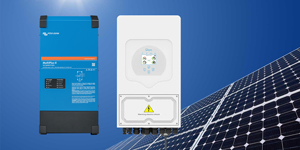SOLDERING LIFEPO4 CELLS
Lithium Battery Supplier
Lithium Battery Supplier, LiFePO4 Battery Wholesale. One Stop Services.
-
Solution Battery BMS -
Solution LiFePO4 Battery Cell
Soldering LiFePO4 Cells: A Critical Step in Ensuring Renewable Energy Storage Soldering LiFePO4 cells is a crucial process in the assembly of lithium iron phosphate batteries, which are widely used in renewable energy systems, electric vehicles, and portable electronics. Lithium iron phosphate (LiFePO4) is a safe, cost-effective, and environmentally friendly alternative to traditional lithium-ion batteries. However, soldering LiFePO4 cells requires specialized techniques and equipment to ensure optimal performance and reliability. When soldering LiFePO4 cells, it's essential to follow proper procedures to avoid damage to the delicate components within the battery. The soldering process must be done in a controlled environment, ensuring adequate ventilation and minimizing the risk of fire or electrical shock. A key consideration when soldering LiFePO4 cells is the selection of the right soldering iron and techniques. A high-quality soldering iron with a low-wattage tip is recommended to prevent overheating and damaging the delicate components. In addition to the soldering iron, the use of a flux is critical in ensuring a strong bond between the solder and the metal conductor. The right flux will help to prevent oxidation and ensure a solder joint that is both strong and durable. To ensure the optimal performance and lifespan of LiFePO4 cells, it is essential to solder the cells with precision and accuracy. The soldering process must be done slowly and carefully to avoid overheating or causing damage to the components. By following proper procedures and using the right equipment, soldering LiFePO4 cells can be a reliable and efficient process, resulting in high-quality batteries that meet the demands of modern renewable energy systems. With the use of LiFePO4 batteries on the rise, soldering LiFePO4 cells is a critical step in ensuring the safe and efficient operation of renewable energy systems.

 EU Stock
EU Stock Poland Stock
Poland Stock Ukraine Stock
Ukraine Stock  USA Stock
USA Stock AU Stock
AU Stock



















